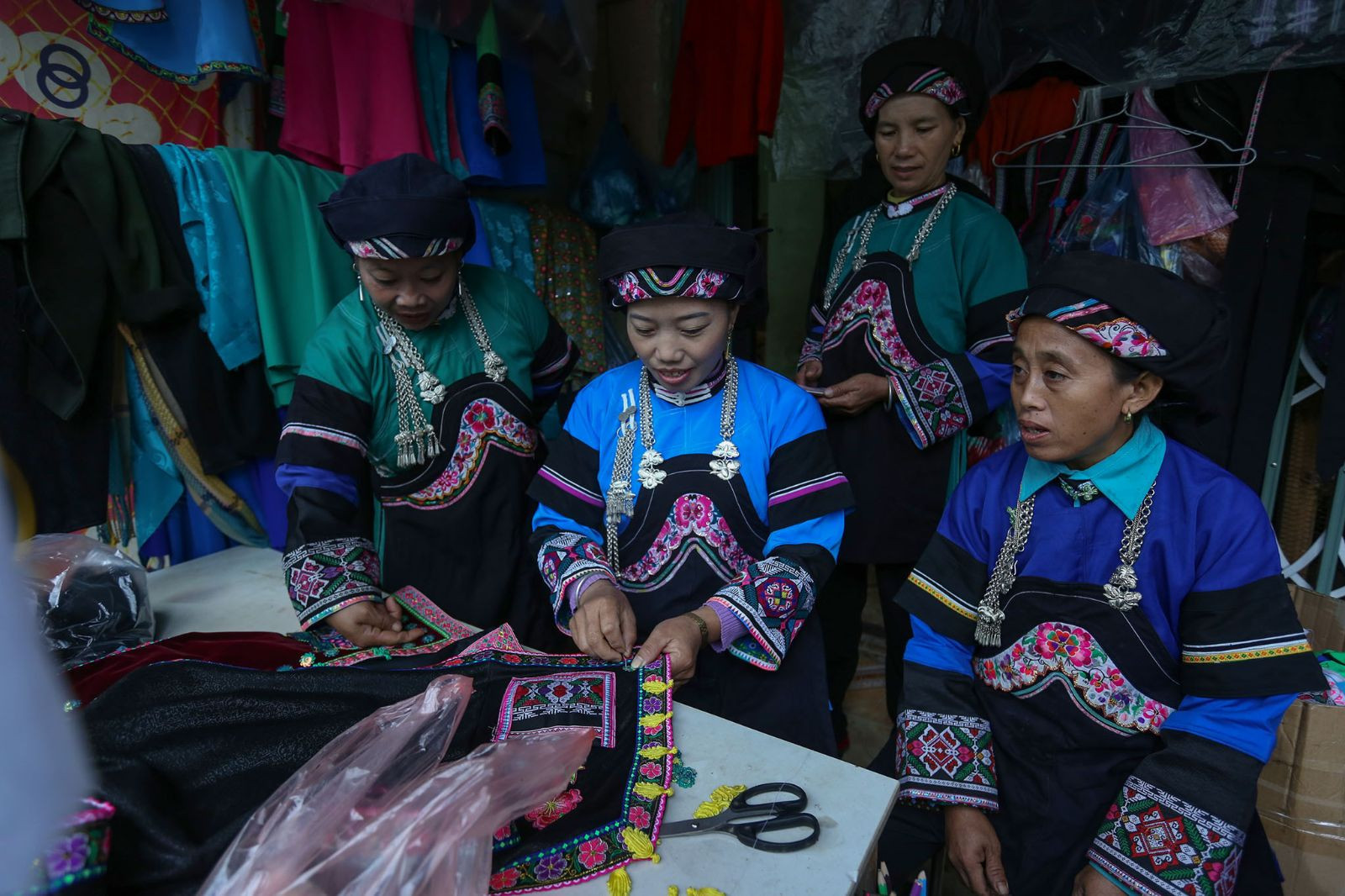
The May 2025 report from the Central Committee of the Vietnam Fatherland Front to the National Assembly highlighted numerous concerns and recommendations from voters and citizens regarding ethnic and religious affairs.
Notably, the report emphasized that the Party and State’s well-intentioned policies sometimes fail to reach ethnic communities convincingly due to gaps between policy documents and practical implementation, inconsistent information, and deliberate distortions by hostile forces.
Voters in provinces of Tra Vinh, Soc Trang, and An Giang reported that some grassroots officials lack thorough engagement, leading to misunderstandings about the beneficiaries of ethnic and religious policies. In particular, some Khmer households in Soc Trang’s Vinh Hai commune (Vinh Chau town) complained about difficulties accessing housing and clean water support despite meeting criteria.
“In Vinh Hai, a subject of the national target program, many Khmer households still do not have access to clear information about home repair loan policies, fostering skepticism and vulnerability to manipulation by bad actors,” the report said.
In Thoi Binh district (Ca Mau province), grassroots task forces reported delays by village officials in updating policy guidelines, leading to slow support for poor Khmer households and creating information gaps that fuel false rumors of discriminatory treatment.
In many places, there are signs of closed communities, radicalization of religious beliefs, and incitement of local nationalism. Some distorted arguments proclaim “discrimination” and “forgottenness”, and even openly promote the idea of “soft autonomy”. These risks require strong, flexible but resolute intervention from socio-political organizations, especially the Vietnam Fatherland Front.
Listening and speaking
Unlike administrative or specialized agencies, the Fatherland Front doesn’t implement policies directly but plays a unique role: gathering public opinions, translating them into policy recommendations, and providing timely socio-political feedback.
The Front’s report noted that it has proposed practical measures, such as expanding electricity and water support for ethnic minority areas, ensuring lawful religious activities, and combating religious discrimination in society.
For example, in 2024, in Gia Lai, the Commune Front promptly refuted false rumors that the government was "forcing religious conversion" in the Bahnar ethnic group. Through community contact and dialogue conferences and the intermediary role of village elders and religious dignitaries, people's beliefs were strengthened.
In Muong Nhe district of Dien Bien province, the Front maintains the “regular policy dialogue in villages” model, with the presence of local authorities, respected community figures, religious leaders, and ethnic minority youth. This model is highly appreciated for addressing grievances and curbing misinformation spread via social media.
In 2024, the Fatherland Front at all levels held over 6,200 meetings and dialogues with ethnic minorities and religious groups nationwide, collecting more than 18,000 opinions and recommendations (35 percent directly related to ethnic and religious policy issues).
However, gathering public feedback is only half of the Front’s role. The greater challenge is “reorienting trust” when policies are distorted, or when some communities lose faith or fall prey to misinformation.
The Front must proactively communicate policies in accessible language, leveraging trusted community figures, legitimate religious organizations, and grassroots Front cadres.
The “soft shield”
Ethnicity and religion are vulnerable areas, easily exploited. It is no coincidence that hostile forces deliberately target these areas to undermine policies.
Protecting ethnic and religious policies is also protecting the foundation of the regime.
In 2023, Ma Ly Pho commune (Phong Tho district, Lai Chau province) there was an incident where reactionary subjects distorted land policies, calling for "self-governance by village". The Front and prestigious people in the locality organized an extraordinary meeting of the people, and coordinated with the Border Guard Station to clarify the truth, stabilizing the situation within five days.
In mid-2024, Huong Hoa district (Quang Tri province) saw agitators urging Van Kieu ethnic communities to “return to the forest,” opposing resettlement policies. The district Front quickly collaborated with local groups to hold democratic forums, inviting beneficiaries of resettlement programs to speak, exposing the agitators’ intentions.
At the forefront, the Fatherland Front acts as a “soft shield” rooted in the people, serving as an intermediary with the power to unite them, bridging the Party’s intent with the people’s will, and turning policy spirit into practical community actions.
“No one understands the people better than those within the community. No one protects policies better than the trust of the people themselves,” said Do Van Chien, Chair of the Central Committee of the Vietnam Fatherland Front, at the 2024 National Conference on Ethnic and Religious Affairs.
Minh Duc